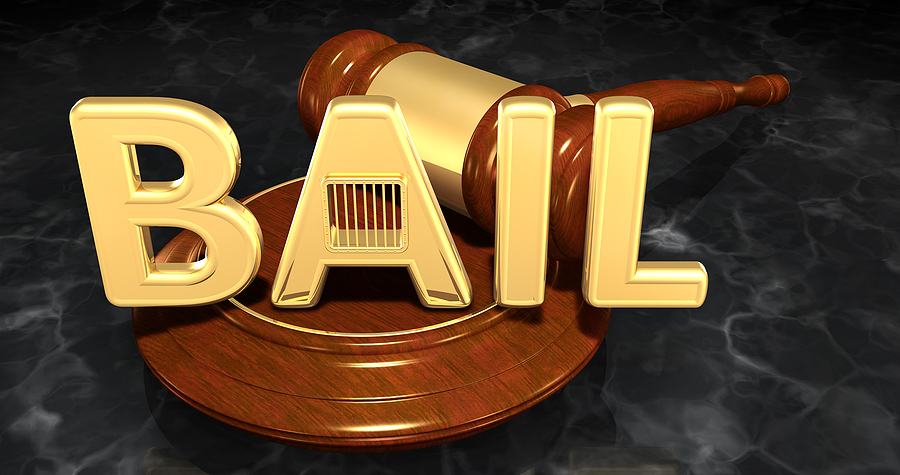Securing release from jail after an arrest is a huge relief. It allows you to return to your family, your job, and your life while preparing for your day in court. But that freedom is conditional. In Indiana, being released on bail—whether you paid cash, used a surety bond, or were released on your own recognizance—comes with strict rules. Breaking them can lead to a sudden and frightening reversal: the revocation of your bail.
If you or a loved one are facing the possibility of bail revocation in Hamilton County, the situation is serious. It’s not just about losing money; it’s about losing your freedom until your trial concludes. Understanding the legal grounds for revocation, the hearing process, and your rights is essential to navigating this critical juncture in the criminal justice system.

Grounds for Revoking Bail in Indiana
When a judge in Noblesville, Carmel, or Fishers sets bail, they are essentially making a contract with you. You promise to follow the rules, and the court promises to let you stay out of jail. If the court believes you have broken that contract, they can revoke it under Indiana Code § 35-33-8-5.
The state prosecutor must prove specific grounds to revoke bail. In Hamilton County, these grounds typically fall into a few key categories:
1. Committing a New Offense
One of the most common reasons for revocation is being arrested for a new crime while out on bond. According to Indiana law, if clear and convincing proof exists that you committed a felony or a Class A misdemeanor while on bail, the court sees this as a demonstration of “instability and a disdain for the court’s authority.” This is a fast track to having your bond revoked.
2. Violation of Release Conditions
When you are released, you sign a laundry list of conditions. Common violations in Hamilton County courts include:
- Traveling outside the state: You usually cannot leave Indiana without written permission from the judge.
- Substance use: If your case involves drugs or alcohol, you may be ordered to remain sober. Failing a drug test administered by Hamilton County Pretrial Services is a frequent trigger for revocation.
- Failure to report: Skipping check-ins with a probation officer or pretrial services officer.
3. Failure to Appear
The primary purpose of bail is to ensure you show up to court. If you miss a hearing—whether it’s an initial hearing, a pretrial conference, or the trial itself—the judge can issue a warrant for your arrest and move to revoke your bond.
4. Threatening Witnesses or Victims
Indiana takes victim safety incredibly seriously. Under Indiana Code § 35-40-6-6, if a victim submits an affidavit stating you have threatened or intimidated them, and the prosecutor finds it credible, they must file a motion to revoke your bond. This includes indirect contact, such as sending messages through friends or social media.
5. Risk to Physical Safety
Even without a specific new crime or threat, a judge can revoke bail if there is clear and convincing evidence that you pose a risk to the physical safety of another person or the community.
Request an Emergency Bail Bond in Hamilton County Now ✅
The Process of Bail Revocation Hearings
Your bail usually isn’t revoked the second a mistake happens; you are entitled to due process. This happens through a revocation hearing.
The Motion and Warrant
The process usually begins when the prosecutor files a motion to revoke bail. Upon reviewing the motion, if the judge finds probable cause, they will issue an arrest warrant. In Hamilton County, local rules dictate that a violation of conditions can result in an immediate re-arrest warrant.
The Hearing
Once you are back in custody, a hearing is scheduled. This is not a full trial for your original crime, but a specific hearing about your release status.
- Burden of Proof: The state (the prosecutor) has the burden of proof. They must show by “clear and convincing evidence” that you violated your conditions or pose a risk.
- Evidence: The rules of evidence are slightly more relaxed than in a trial. For example, “credible hearsay” is admissible to establish good cause for revocation. This means a police officer could testify about what a witness told them, even if the witness isn’t present.
The Defense
During this hearing, your attorney has the chance to present evidence on your behalf. They might argue that the violation was a misunderstanding, that the missed court date was due to a medical emergency, or that mitigating factors suggest you should remain released despite a minor slip-up.
Potential Consequences of Bail Revocation
If the judge rules against you, the consequences are immediate and severe.
Return to Custody
The most direct consequence is that you are taken back to the Hamilton County Jail. In many revocation cases, you may be held without bond (held “no bond”) for the remainder of your case. This means you will stay in jail until your trial or a plea agreement is reached, which could take months.
Forfeiture of Bond Money
Revocation and forfeiture are legally distinct, but they often go hand-in-hand. If you used a cash bond or a surety bond (a bail bondsman), that money is at risk.
- Cash Bond: The county may keep the money you posted.
- Surety Bond: If you used a bondsman and fled, the bondsman is on the hook for the full amount. Consequently, you will owe the bondsman that full debt, and they may hire bounty hunters to locate you.
Impact on Your Original Case
While a bond revocation is technically separate from the guilt or innocence phase of your trial, it can psychologically impact the proceedings. It paints a picture of a defendant who cannot follow rules, potentially influencing plea negotiations with the prosecutor.
How a Defense Attorney Can Help
Facing a revocation motion does not guarantee you will go back to jail. A skilled criminal defense attorney can intervene in several ways:
- Challenging the Evidence: They can argue that the state’s evidence of a violation is weak or circumstantial.
- Contextualizing the Violation: If you missed a drug test, your attorney might explain valid reasons for the miss (like a car breakdown) or advocate for increased treatment rather than jail time.
- Negotiating Alternatives: Instead of full revocation, your attorney might persuade the judge to simply increase the bond amount or add stricter conditions, such as GPS monitoring or home detention, allowing you to keep your job and family life intact.
Frequently Asked Questions
Can I get my bail money back if my bond is revoked?
Generally, no. If you violate the conditions of your bond, the court has the authority to forfeit the funds. If you used a bail bondsman, the premium you paid is non-refundable, and you may be liable for the full bond amount if you fail to appear.
What is the difference between bond revocation and bond forfeiture?
Revocation is the act of ending your release and putting you back in jail. Forfeiture is the financial penalty where the court takes the bond money. While often related, they are separate legal actions.
Does Hamilton County have a specific schedule for bonds?
A: Yes. Hamilton County uses a “Bail Bond Schedule” (Appendix A of the local rules) that sets standard bond amounts based on the severity of the charge (e.g., Level 6 Felony vs. Class A Misdemeanor). However, judges have discretion to deviate from this schedule based on safety risks.
Can I be held without bond for a misdemeanor violation?
While rare for minor offenses, it is possible if you have repeatedly violated court orders, failed to appear, or if the misdemeanor involves domestic violence or threats against a victim.
Final Thoughts
The bail system is designed to balance the presumption of innocence with community safety. When that balance is threatened by an alleged violation, the courts act quickly. However, a revocation hearing is not a formality—it is a legal proceeding where your rights matter.
If you are navigating the complex waters of the Hamilton County justice system, staying informed is your best defense. Whether it’s understanding the local bond schedule or knowing the triggers for revocation, knowledge is power.
Need help with bail in Hamilton County? If you or a loved one needs to post bail, or if you are dealing with the aftermath of a re-arrest warrant, you need a partner who understands the local Hamilton County system. Don’t wait in jail a minute longer than necessary. Contact our 24-hour bail bond service in Hamilton County today for fast, confidential, and professional assistance.
Related Post: The Hidden Risks of Co-Signing a Bail Bond in Hamilton County







